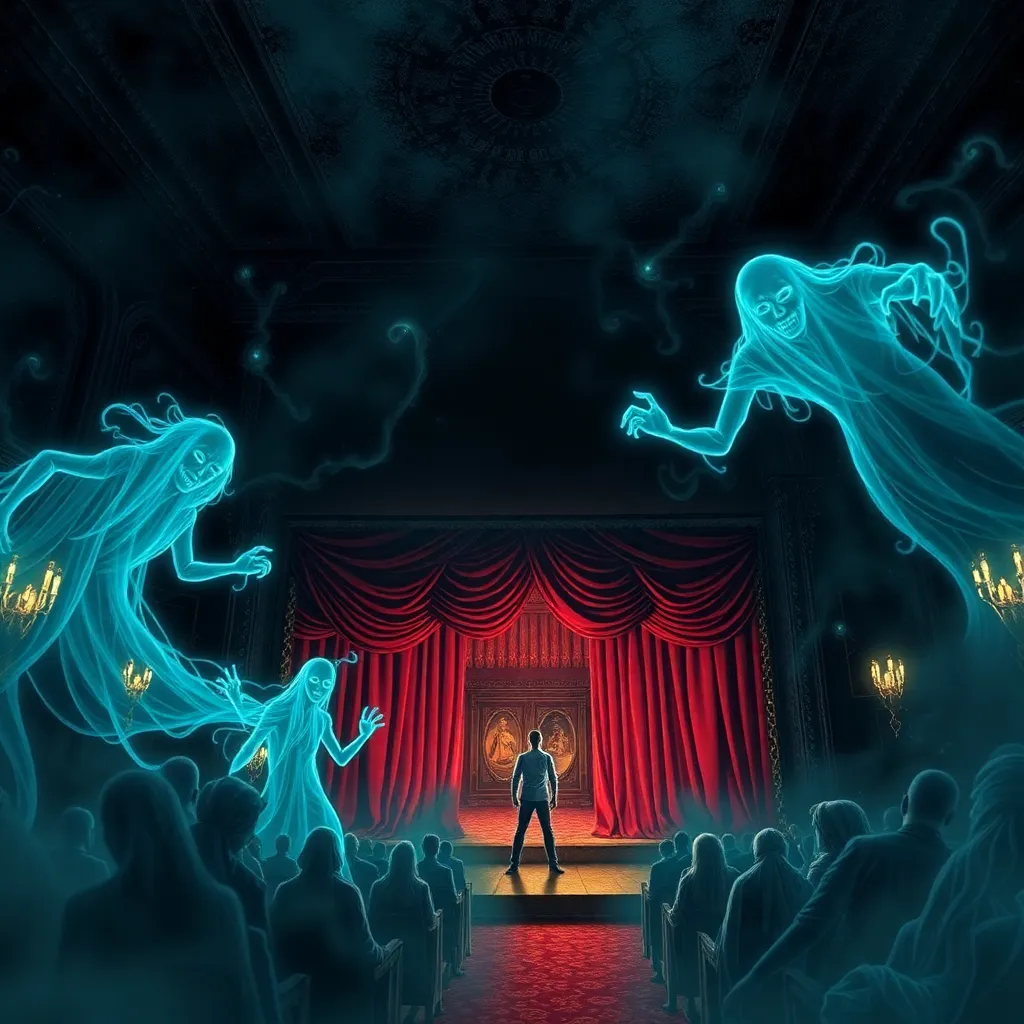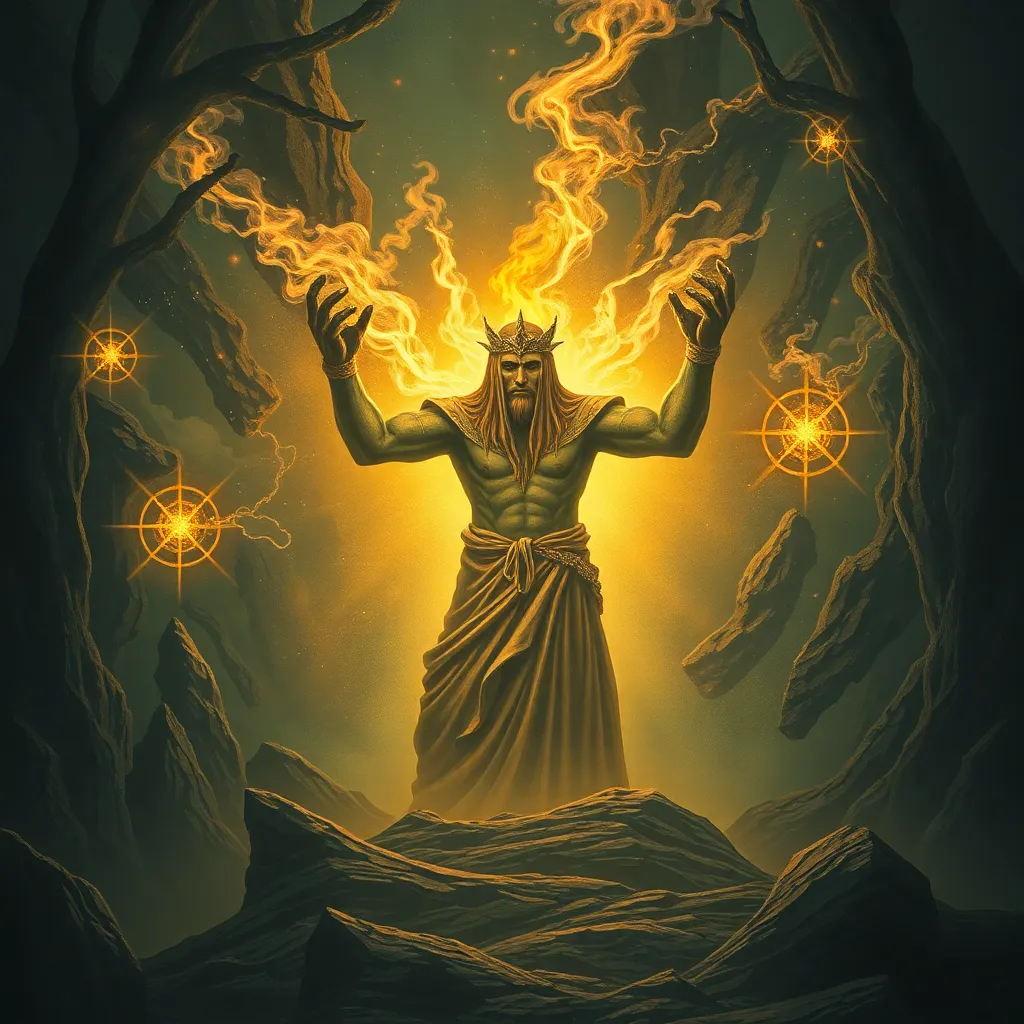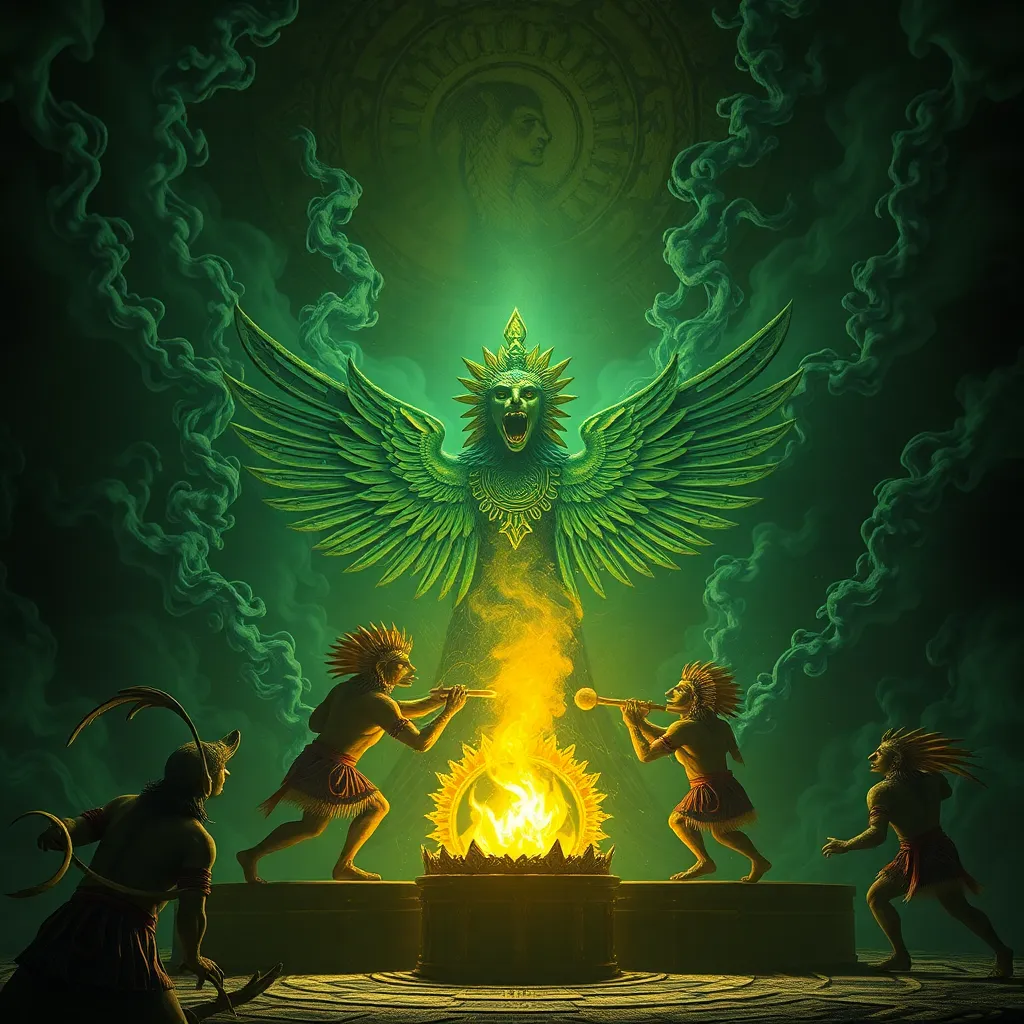The Ghosts of the Haunted Theater: The Vengeful Spirits of the Actors Who Died in the Theater
I. Introduction
Across the globe, theaters have long been considered venues of creativity, passion, and performance. However, many also harbor dark secrets, with tales of ghosts and hauntings that add an eerie dimension to their rich histories. The theater in question here is no exception, having gained notoriety not only for its performances but also for the spectral actors who are said to linger within its walls.
Founded in the late 19th century, this theater has witnessed countless performances, each leaving its mark on the fabric of its history. Yet, intertwined with its legacy are the tragic tales of actors who met untimely fates, resulting in an unsettling ambiance that fuels stories of vengeful spirits. Folklore often depicts these spirits as restless souls seeking resolution, highlighting the intersection of art and the supernatural.
II. Historical Background of the Theater
The establishment of this theater marked a significant cultural milestone in the community, becoming a hub for artistic expression and creativity. Over the decades, it has hosted various notable performances, from Shakespearean classics to avant-garde productions, each leaving an indelible impression on its audience.
However, the theater’s history is not without its darker chapters. Various tragic incidents, including stage accidents and mysterious deaths, have contributed to the haunting atmosphere. Some of the most notable events include:
- A catastrophic stage collapse during a performance in 1925, resulting in the deaths of several actors.
- The mysterious disappearance of a prominent actress in the 1950s, whose body was never found.
- A fire in the 1970s that claimed the life of a beloved director, leading to rumors of his restless spirit roaming the theater.
III. The Legends and Lore Surrounding the Ghosts
Legends surrounding the theater’s ghosts have become a vital part of its identity. Stories of phantom actors and haunted performances abound, captivating locals and visitors alike. Among the most popular ghost stories are:
- The Weeping Actress: Said to be the spirit of the actress who vanished in the 1950s, her sobs can reportedly be heard backstage during late-night rehearsals.
- The Phantom Director: Witnesses claim to see a shadowy figure directing performances from the back of the house, believed to be the spirit of the director who perished in the fire.
- The Ghostly Applause: Audiences have reported hearing applause during performances when no one is present, believed to be the spirits of past actors enjoying the show.
The cultural significance of these legends transcends mere entertainment; they serve as a reminder of the theater’s rich history and the lives that have been intertwined with its fate.
IV. Eyewitness Accounts and Personal Stories
Many individuals have come forward with personal stories and eyewitness accounts of their encounters with the theater’s ghosts. Staff members, actors, and visitors have all reported strange occurrences, including:
- Items mysteriously moving or disappearing, only to return later in unusual places.
- Cold spots felt in specific areas of the theater, particularly backstage and in the dressing rooms.
- Intense feelings of being watched, especially when alone in the building.
One particularly notable encounter involved a stage manager who reported a chilling experience during a late-night rehearsal. As she was adjusting the lights, she felt a sudden rush of cold air and heard a whisper calling her name. When she turned around, she saw a figure clad in old-fashioned clothing standing at the edge of the stage before vanishing into thin air.
These experiences have profoundly impacted the theater community, fostering a sense of camaraderie among those who share their ghostly encounters.
V. Psychological and Cultural Interpretations of Vengeful Spirits
The concept of vengeful spirits can be analyzed through various psychological and cultural lenses. The presence of such spirits often stems from unresolved grief, trauma, or a longing for recognition. In the context of the theater, these factors may be particularly pronounced due to the emotional intensity of performance.
Theatrical traditions often intertwine with ghostly manifestations, as the theater is a space where life and death converge. The narratives of past actors and their unfinished stories haunt the theater’s history, creating a tapestry of art and the supernatural.
Moreover, the role of grief in haunting narratives is profound. Many of the ghost stories associated with the theater serve as a means for the living to process loss and remember those who have passed on, transforming sorrow into a celebration of legacy.
VI. Investigative Efforts: Ghost Hunts and Paranormal Studies
In recent years, the theater has attracted the attention of paranormal investigators and ghost hunters eager to explore its haunted reputation. Numerous investigations have been conducted, utilizing various methods and equipment, including:
- EMF meters to detect electromagnetic fields.
- Audio recorders to capture potential EVP (Electronic Voice Phenomena).
- Infrared cameras to document any unexplained visual phenomena.
Findings from these investigations have yielded intriguing evidence supporting the presence of spirits. Investigators have recorded unexplained voices, strange temperature fluctuations, and even visual anomalies that suggest the existence of otherworldly entities.
VII. Theatrical Adaptations and Media Portrayals
The haunted theater has not only influenced local lore but has also inspired various adaptations in literature and film. The stories of its ghosts have served as the foundation for:
- Novels that explore the intersection of art and the supernatural.
- Documentaries that delve into the theater’s history and ghostly reputation.
- Stage plays that dramatize the ghost stories and the lives of the actors.
These portrayals have significantly impacted public perception, transforming the theater into a cultural icon steeped in mystery and intrigue.
VIII. Conclusion
The enduring nature of ghost stories within the theater speaks to humanity’s fascination with the supernatural and the stories that transcend death. The theater serves as a poignant site of memory and remembrance for the lost actors whose spirits continue to linger, enriching the cultural tapestry of the venue.
In reflecting on the intersection of art, death, and the supernatural, we find that these narratives not only entertain but also provide insight into the human experience—an exploration of loss, legacy, and the vengeful spirits that may haunt us from beyond.




